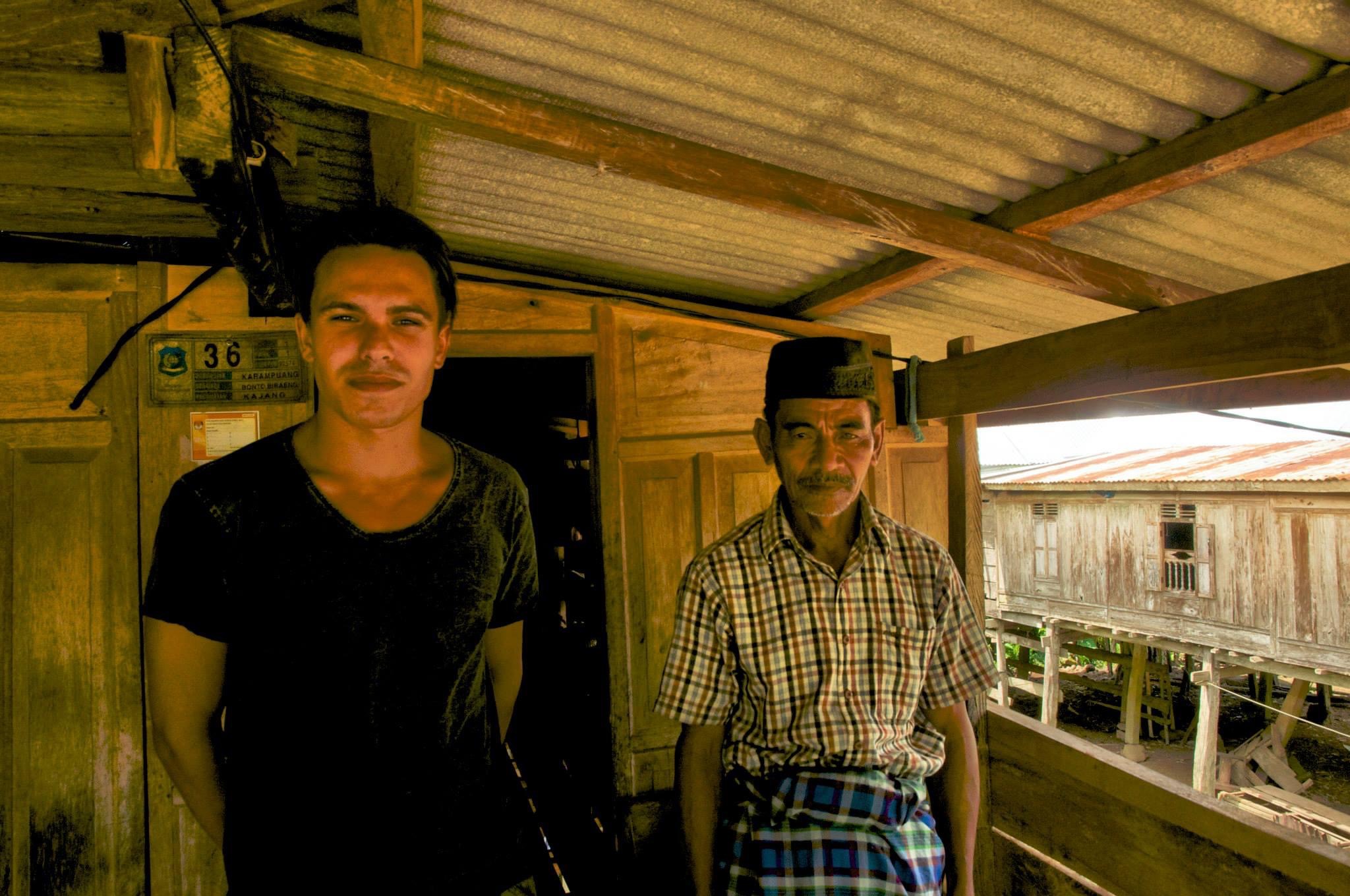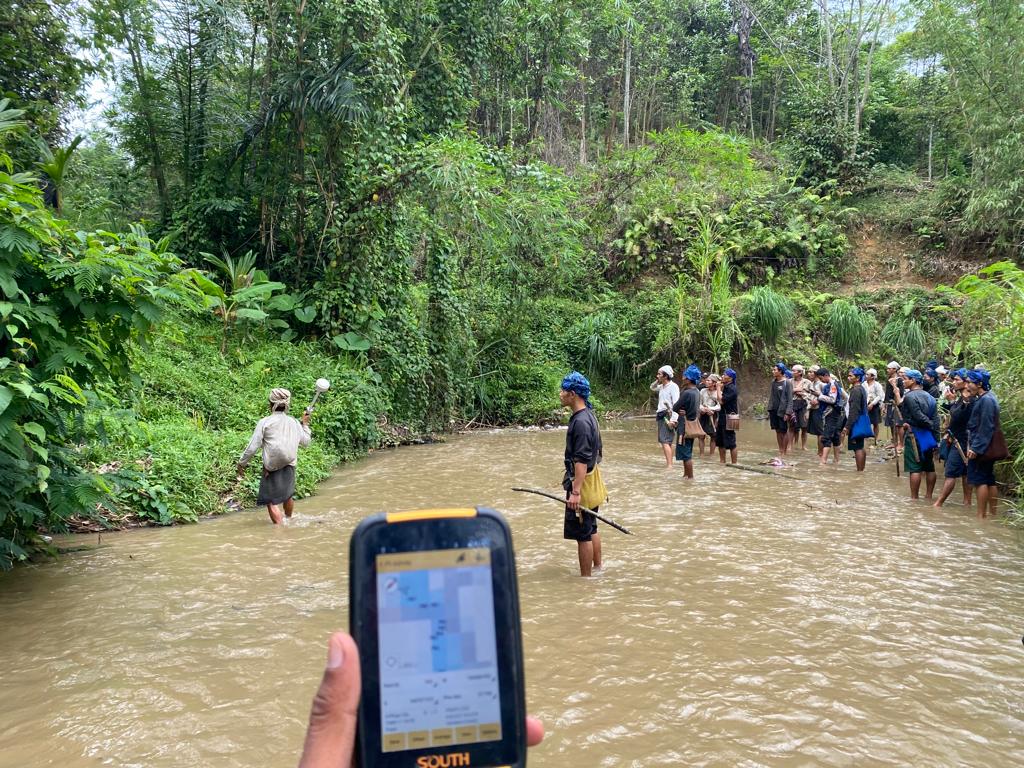
Alumnus Willem van der Muur: ‘I wanted to work somewhere I could make an impact’
Willem van der Muur worked at the Van Vollenhoven Institute as a PhD candidate from 2013 to 2019. After completing his doctorate he left for Indonesia to work for the World Bank. There, he is leading a project to register land rights.

Why did you choose to do a PhD in Leiden while you’d done all your other degrees in Amsterdam?
I hadn’t originally planned on doing a PhD. I’d done two master’s degrees in Amsterdam on social sciences and international law. After graduating, I found it hard to find a job that really appealed to me. When I applied for jobs that looked interesting, I was told they were looking for someone with more experience. But how do you gain experience if you don’t get the chance to do so? I spotted an online vacancy for PhD research into land conflicts in Indonesia. It seemed right up my alley, as my background is in both law and sociology. Not only that, I had already written my master's thesis on Indonesia and was taking a course to learn the language.
You were eventually awarded a doctorate on the topic and have now been living and working in Indonesia for some years. Is it a country that had always interested you?
My interest stemmed from my family background. My grandparents and father were born in Indonesia and came to the Netherlands in 1950 when my father was three years old. Because of their experiences during World War II and the Indonesian war of independence, it wasn’t talked about much at home. The focus was on a future in the Netherlands. But I did occasionally hear stories about Indonesia. After leaving secondary school, I travelled around the world and was the first member of my family to return to Indonesia.
In Jakarta, you’re working on a major project for the World Bank. Can you tell us a bit more about that?
Indonesia is a huge country with a population of almost 280 million people. It’s experiencing tremendous economic growth as a country, but at the same time faces major development challenges. Until eight years ago, only about a third of all land was registered. The World Bank is supporting the Indonesian government with a series of large-scale projects to systematically register these land rights. The project I’m currently working on has a $653 million budget, making it the World Bank’s largest ever land project.
Most people here, especially in rural areas, own a piece of land or have a paddy field. But that land has never been officially registered. In the past, people often lost their land due to expanding mining or palm oil plantations being set up. By registering people's land and preparing land certificates, it becomes clear who owns what piece of land. This will help prevent land conflicts in the future.
On a personal level, what do you hope to get out of this project?
I worked on my PhD thesis for six years. During that time, I watched as people around me launched their careers. Sometimes I did wonder: ‘have I made the right choice to go into a subject in such depth?’ But with this new project, I feel I’ve been able to influence policy to some extent. My work at the World Bank means I’ve been able to help millions of people with securing their land rights. After my PhD, I wanted to work somewhere I could make an impact. With this project, I really feel I can mean something to the people here.
'Researchers sometimes need to look further so that knowledge doesn’t get stuck in the ivory tower of academia.'
What’s your best memory from your time in Leiden?
Generally speaking, I have many fond memories of the good atmosphere within our team and the boundless curiosity of my colleagues. I felt right at home. One of my best memories was when my supervisor, Professor Jan Michiel Otto, came to visit during field work on Sulawesi, where I was doing research on land conflict. After I’d been there for six months, he came to visit me. Together, we went to see the village’s customary leader. It was a unique experience to see how the great man from Leiden visited the great man from the village – so funny to be sitting on the floor with my professor in a small wooden hut.
On 29 January 2025, you’re speaking at a seminar on how academic research can influence national and international policy. Why is this such an important theme?
I’m grateful that I’m able to put the findings from my PhD thesis into practice at my current job. So, there’s a direct link between my research and the work I’m doing now. I think actually pointing to the outcomes of such research and how it can be applied in practice, can be inspirational. Researchers sometimes need to look further so that knowledge doesn’t get stuck in the ivory tower of academia.
Willem van der Muur will speak at a seminar of the Royal Netherlands Institute of Southeast Asian and Caribbean Studies on 29 January 2025. This seminar is a hybrid event and will be held in the conference room of KITLV, Herta Mohr building, room 1.30 (Witte Singel 27A). If you want to join this seminar on location, please register via: kitlv@kitlv.nl.
Find more information here

